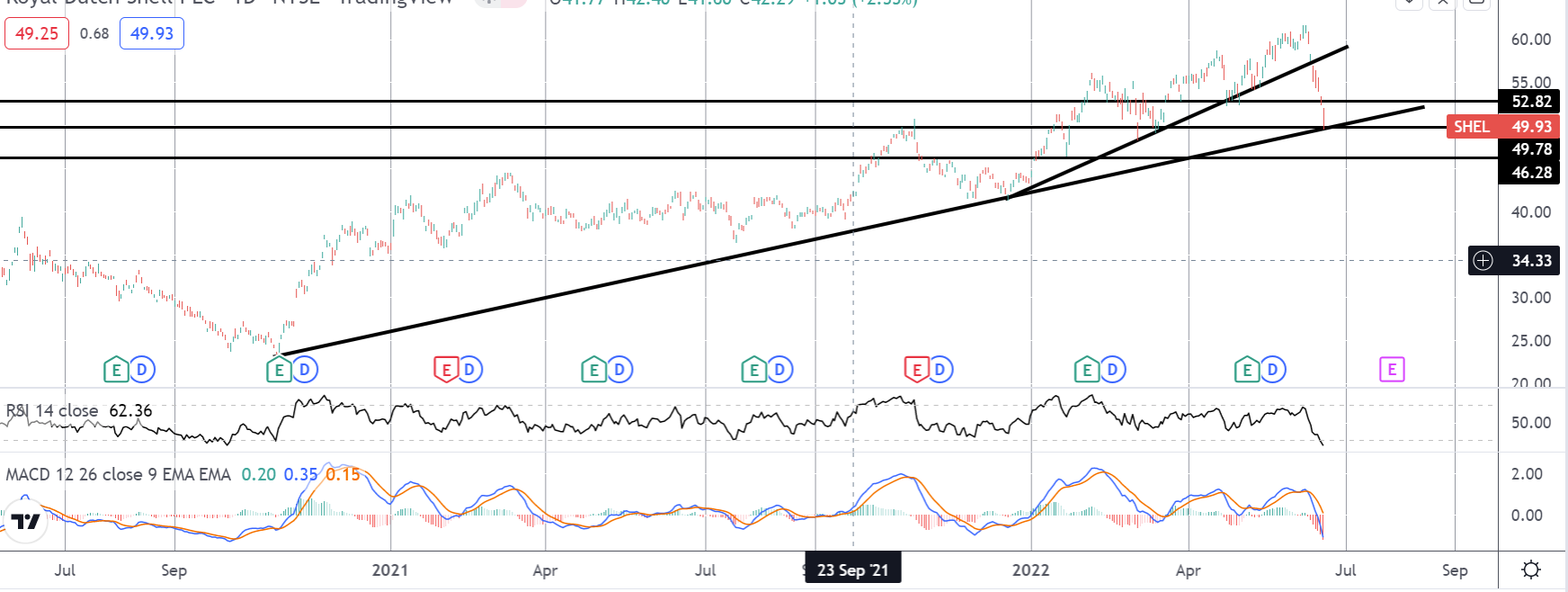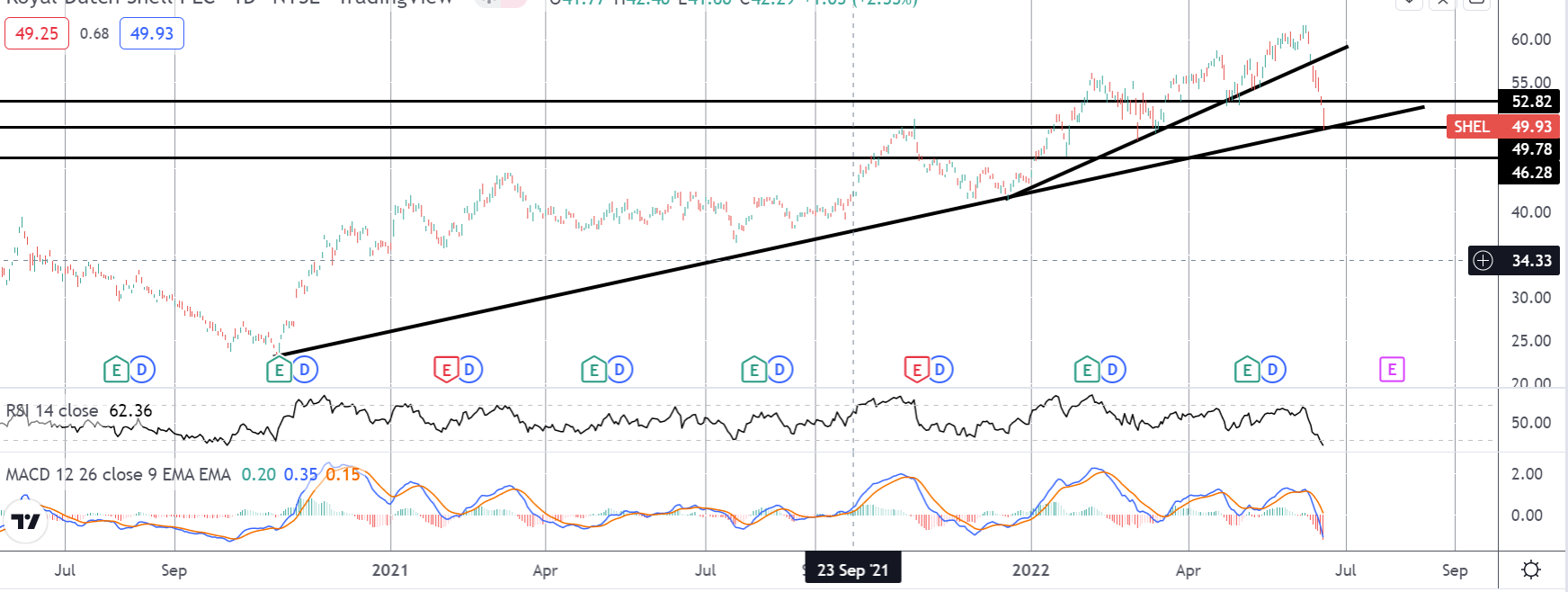Market Spotlight: Shell Gives Back 50% of 2022 Gains

Shell Shares Falling Fast
Royal Dutch Shell had been one of the best performing stocks of 2022 up until very recently. Shares in the company surged higher by around 40% from Jan 1st through to the start of June. Peaking at north of $60 per-share, Shell has since given back around half of these gains with the company’s stock plummeting in recent weeks. The decline has come despite a solid Q1 earnings release and has confounded some stock-watchers who were looking for the rally to continue.
In terms of identifying the driver behind the move, there are a couple of issues. Firstly, we have the broader stock sell-off we’ve seen amidst increasingly aggressive tightening from the Fed and growing recessionary fears in the US. Secondly, shareholders are increasingly worried over Shell’s plans to move further into renewables and away from traditional fossil fuels. With energy prices at highs, shareholders fears the company will give up on valuable profit opportunities over coming years. Thirdly, a number of institutions have been noting forecasts that Shell’s profits will peak this year which has been leading to a exodus as longer-term holder cover positions.
The question now is whether Shell shares represent a discounted opportunity for bulls at this price or whether we have much deeper to run.
Technical Views
Having broken through the bull trend line from YTD lows, price is now testing the longer-term bull trend line and structural support at the 49.78 level. This is a key area for Shell. If the trend line holds, the medium-term focus remains on further upside. If we break below, however, focus turns to 46.28 initially and a deeper move lower beyond that.

Disclaimer: The material provided is for information purposes only and should not be considered as investment advice. The views, information, or opinions expressed in the text belong solely to the author, and not to the author’s employer, organization, committee or other group or individual or company.
Past performance is not indicative of future results.
High Risk Warning: CFDs are complex instruments and come with a high risk of losing money rapidly due to leverage. 72% and 73% of retail investor accounts lose money when trading CFDs with Tickmill UK Ltd and Tickmill Europe Ltd respectively. You should consider whether you understand how CFDs work and whether you can afford to take the high risk of losing your money.
Futures and Options: Trading futures and options on margin carries a high degree of risk and may result in losses exceeding your initial investment. These products are not suitable for all investors. Ensure you fully understand the risks and take appropriate care to manage your risk.
With 10 years of experience as a private trader and professional market analyst under his belt, James has carved out an impressive industry reputation. Able to both dissect and explain the key fundamental developments in the market, he communicates their importance and relevance in a succinct and straight forward manner.
